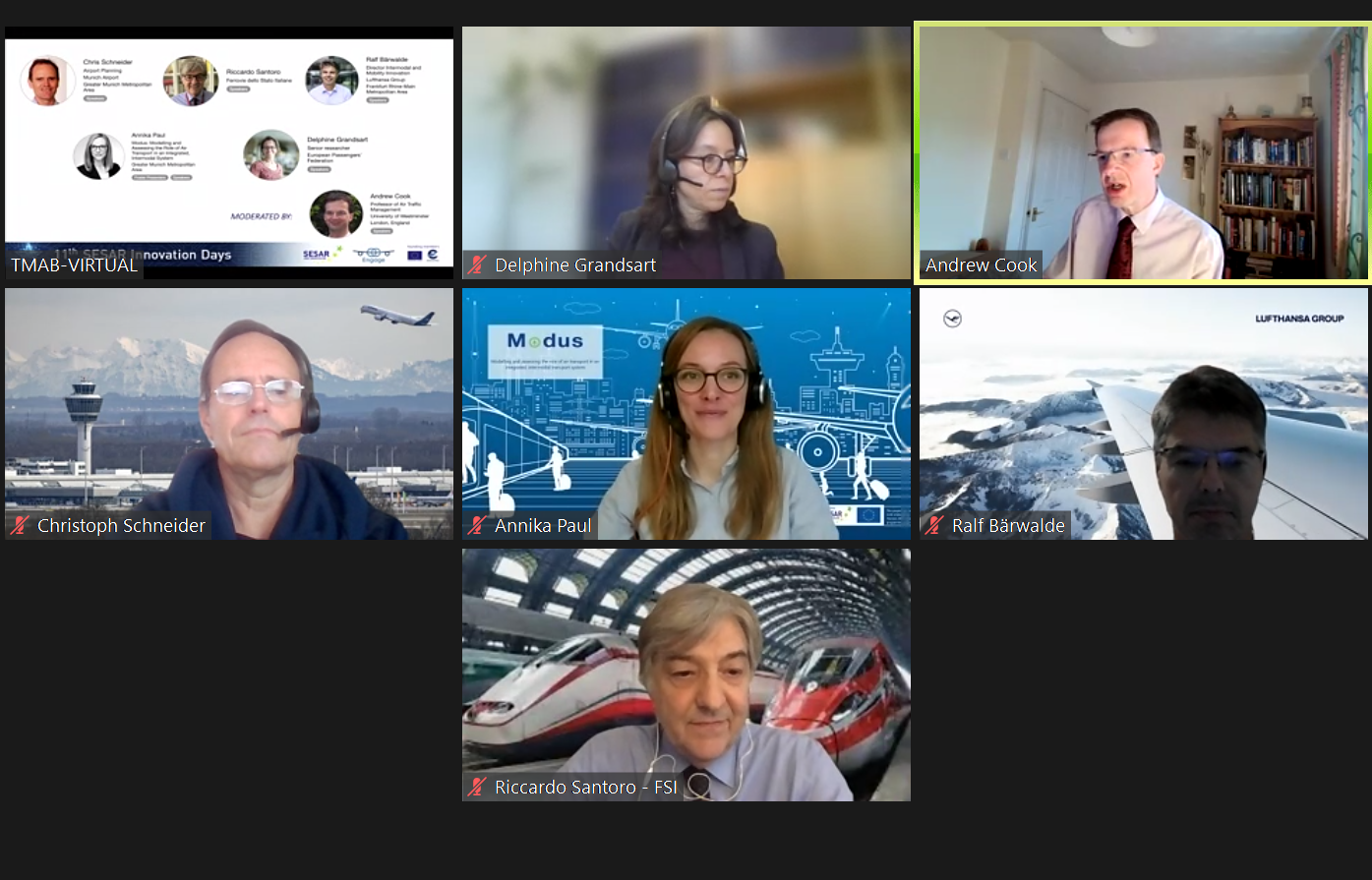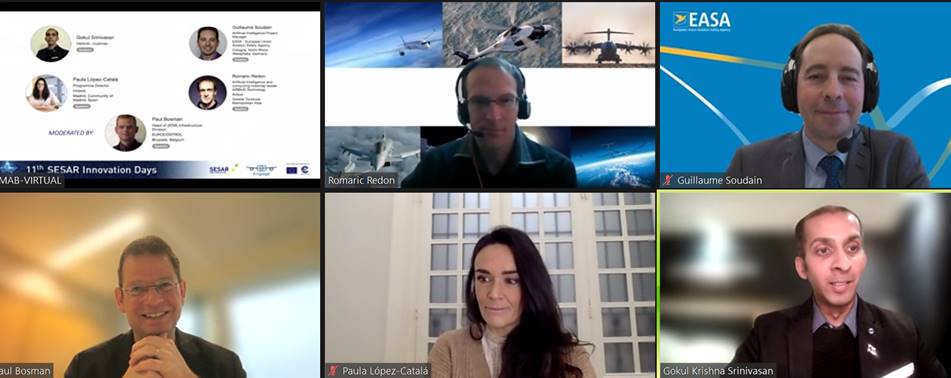Multimodality, climate neutral aviation and urban air mobility were just some of the research themes to be presented during the SESAR Innovation Days (SIDs), which took place on 6-9 December as a virtual conference. Results stemming from the showcased projects have the potential to push the boundaries of air traffic management (ATM), making it smarter and more sustainable in the coming years, participants heard.
Now in its eleventh edition, the SESAR Innovation Days, a flagship event in the aviation research calendar, is showcasing some of the breakthrough concepts from the SESAR Joint Undertaking’s exploratory research portfolio, as well as novel outcomes from the broader ATM research community.
Altogether, the conference featured more than 30 posters and 30 papers, covering wake vortex detection, data-driven methods for safety and resilience prediction, climate-optimised trajectories, capacity sharing in virtual centres, drone traffic management, among other research topics.
The concepts presented reflect Europe’s vision to make its airspace the most efficient and environmentally-friendly sky to fly in the world, contributing to the long-term sustainability of the aviation industry and its recovery from the COVID crisis.
“The pandemic has highlighted the urgent need to move ahead with the digital transformation of air traffic management in Europe, to build greater resilience, scalability and sustainability into the system,” said Richard Frizon, Executive Director ad interim of the SESAR Joint Undertaking. “This requires the continuing engagement of the ATM research community, young talent and strong collaborations like those on display at the SESAR Innovation Days.”
Researchers [in ATM] have a double objective to work on; the decarbonisation of aviation and digitalisation, said Eamonn Brennan, Director General, EUROCONTROL, who gave the opening keynote. What’s different today is that these are no longer regarded as separate objectives; we have to have digitalisation done in a way that reduces our carbon footprint. So whatever we develop and implement has to be innovative, but it has to be productive, add capacity and decarbonise all at the same time, he added.
We also must think multimodal, and move away from modernising modes of transport in isolation of one another. That was the message passed by Carlo Borghini, Executive Director of Europe’s Rail Joint Undertaking, in his keynote address. A multimodal transport system, offering seamless mobility services, is an essential component of smarter and more sustainable mobility in Europe, he argued. The topic was also the focus of a conference panel, which looked at progress made towards multimodality and what steps need to be taken to speed up its delivery.

The conference also dedicated a session to the application of artificial intelligence in ATM. The panel of experts discussed the limitless potential of AI to support the automation of air traffic control, but underlined the need for an approach that is human-centric and progressive in order for these applications to be reliable, safe and certifiable.

Fittingly, the conference closed with the SESAR Young Scientist Award ceremony, celebrating the next generation of aviation and ATM researchers. The 2021 edition of the award widened its scope, recognising scientific excellence in two categories; post doctorates (“PhD”), and undergraduate and master students (“students”). The top prize in the students category went to Chen Xia, Universidad Politécnica de Madrid, who addressed conflict anticipation and resolutions to mitigate the risk of mid-air loss of separation. The jury commended Xia for the approach taken and the remarkable level of knowledge and accuracy shown in her thesis.
Philippe Monmousseau, ENAC, won first prize in the PhD category for his work on performance-based assessments in air traffic management. The jury commended him for his scientific rigour and for expanding the conventional key performance indicators to include passenger-centric data and interfaces with other modes of transport.
The next SESAR Innovation Days are due to take place in Budapest, Hungary, in 2022 – dates to be communicated in the coming months.
More about SESAR Innovation Days
More about the Young Scientist Award
